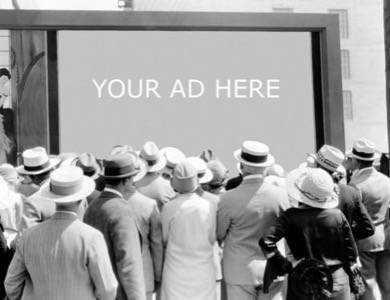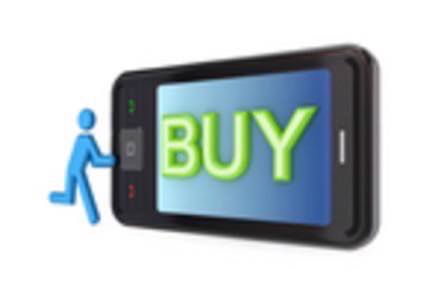
The premium advertising platform Facebook launched last week, which includes an increased emphasis on mobile, is getting mixed reviews from industry professionals.

“Bottom-line- this is gonna fail because People don’t want to recommend an ad,” said Natalie L. Petouhoff, a former senior analyst at Forrester Research. “They want to recommend a product, service or company that they have had an amazing experience with. (Or they want to share great content.) That expression of joy, surprise, wonderment… is a natural thing that people share with each other.”
Facebook’s revamped advertising program took second seat last week to news that the company was overhauling its brand pages by adding Timeline. Both initiatives are aimed at addressing concerns from potential investors about Facebook’s revenue model as it nears its initial public offering, but the premium ad model is likely to have a bigger impact on users, according to a dozen advertising industry executives interview over the weekend by ReadWriteWeb.
“Nice try Facebook, but its still not there.” – Natalie L. Petouhoff, senior analyst at Forrester Research.
One of the biggest problems, Petouhoff said, is that there’s no incentive for users to share an ad: something that is fundamental to the rest of the Facebook experience. While the new program is a step up from previous attempts by Facebook to bolster revenues and returns for advertisers, the program may still fall short.
“Nice try Facebook, but its still not there,” Petouhoff said.
Ads Will Look Like Status Updates
The biggest change users will notice is that premium ads will appear in their timeline and news feeds; currently, ads are relegated to the right-side column underneath the news feeds. The ads will presumably be targeted at individual users based on geographic location and other data people share on the social network. In short, the more information you share with and on Facebook, the more relevant the ads you will see.
“These ads will begin look and feel like status updates, potentially creating more interest in a previously disregarded area of the page,” said Nicholas Kinports, who heads digital strategy at lonelybrand.
Compass Labs CEO Dilip Venkatachari said Facebook’s new ad structure will be successful if they make good on their promises, including extending the reach of messages to people who like a brand on Facebook.
“Beyond engagement they have done a great job of embracing reach and content. Look at the Reach Generator, which is their new tool to amplify the reach of marketing messages,” Venkatachari said. “Currently, the average post reaches 16% of fans, which will increase to 50% of fans weekly and 75% of fans monthly. It will be a fixed fee based on the number of fans. The new ad placements will also produce more alignment with Page Posts, again bringing the ad closer to the content.”
More Mobile Ads On The Way
The other big change for users will be advertising on mobile apps, which Facebook has not had to date. That could be a crucial component for boosting advertising revenue, if carried out effectively, according to Mitchell Reichgut, founder and CEO of social video platform company Jun Group.

“Facebook’s move into mobile advertising will allow brands to speak to consumers at key moments in their day. Typically, mobile ads drive lower response rates than their Web-based counterparts, but this will likely change over time as the technology and ad formats continue to evolve,” he said.
David Simon, vice president of ad solutions at Local Corporation, said Facebook will face many of the same challenges other companies have faced as they tried to increase mobile ad revenue.
“The local mobile ad space is an important component to any mobile strategy but developing discrete ads for each platform…has proven expensive and cumbersome,” Simon said. “For end users, receiving an ad that is irrelevant socially, contextually or locally could quickly dull them to the Facebook mobile experience, rendering the ads ineffective. Facebook and the rest of the social media ecosystem could face severe backlash if locally relevant ads are not core to their advertiser offering. “
The new push comes at a time when Facebook needs to prove to potential investors it can grow revenue. The company announced an initial public offering earlier this year that could value Facebook at more than $100 billion.
“At this moment, more activity and conversations are taking place at Facebook on making money and monetizing than any other point in the history of the company. More advertising may overwhelm and alarm users, as they haven’t had to endure a lot of advertising,” said Chris Cunningham, co-founder and CEO of appssavvy, an activity advertising technology company. “That being said, the ads announced are along-the-lines of more of the same. The Facebook user will probably have negative feedback, which is great, as ultimately, that feedback will lead to a path of better advertising, increased revenues and long-term growth.
Boxing Out Bit Players
Several people we spoke with said the new ad platform means more exposure for people who place ads – which means people who can afford to place ads. Many of the ad execs predicted smaller businesses and nonprofits would be boxed out of the Facebook ad space. Facebook is requiring a minimm spend of $25,000 per month for premium ads, according to Brooke Snow, an Account Executive digital marketing agency Anvil Media, Inc.
“The Facebook Marketplace ads (the standard ads we are all used to) will still be available for smaller companies to utilize, but with the ads only showing in the right sidebar they will have less of a chance to standout against the ads that will now be front and center on the newsfeed (desktop and mobile) and log out screen,” Snow said in an email. “From a user standpoint this means even more advertising clutter and you can’t help but shutter when you think Facebook might be headed down the ad covered direction of MySpace.”
This gives a huge advantage to the companies that can afford the premium ads, according to according to Jonathan Rick, a director at Levick Strategic Communications, LLC in Washington, D.C.
“I’m curious to see how clearly Facebook will label ads as ads, but suffice it to say that the new platform will dramatically expand a brand’s visibility,” Rick said. “The goal seems to be for users to view brands less as companies and more as friends.”
















